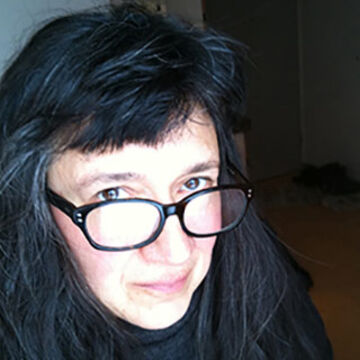

Claire Pentecost
Professor
Contact
Bio
BA, 1978, Smith College, Northampton, MA; MFA, 1988, Pratt Institute, Brooklyn; 1983, Skowhegan School of Painting and Sculpture; 1988–89, Whitney Independent Study Program. Exhibitions: dOCUMENTA(13), Kassel, Germany; 13th Istanbul Biennial; WhiteChapel, London; Higher Pictures, NY; DePaul Art Museum, Chicago; Murray Guy, NY; Orchard, NY; Corcoran Museum, D.C.; Transmediale 05, Berlin; American Fine Arts, NY. Publications: Scapegoat; Undoing Property(?); Radical History Review; Tactical Biopolitics; Talking with Your Mouth Full (coauthor). Bibliography: The New York Times; New York Magazine; Art & Text. Awards: Bellagio Residency, Italy; Banff Center for the Arts; Illinois Arts Council; Chicago Public Art Commission.
Experience at SAIC
It's been an amazing privilege to be part of SAIC.
Personal Statement
The motivation for my work is to learn about the world I live in, the world that hosts and sustains me, a world called earth. For this basic project, i think of myself as a public amateur, someone who consents to start with "I don't know" and proceeds by learning things in public view, public so that we can put the process of learning itself in a space reserved for debating values, the discursive space we designate as art.
For many years my work interrogated the contested line between what we call the natural and the artificial; this inevitably brought me to food. Many more years were devoted to studying the industrial food system and the way it touches almost every issue you can think of: biodiversity, cultural diversity, energy, health, class, transportation, trade, imperialism, race and so forth. Again inevitably (or so I feel), I came to consider alternative approaches to agriculture and food production. Voilá, we arrive at soil, the focus of my inquiries since 2011.
At dOCUMENTA(13) I proposed that soil become the basis for a system of value. This came out of studying soil biology and realizing what a marvelous living cosmos of interdependency exists under our feet, underwriting life on earth. Currency has not been anchored to anything material since Nixon abolished the gold standard in 1972, but world economy has de facto been organized around the petrodollar, a quotient of the American dollar and the price of oil. What if we based our economy on something that is truly precious to the course of life, something that must be cared for and replenished? I called the unit of this new currency soil-erg and that is the name of the project which consists of many parts.
This piece made me realize how much I yearn to pass symbolic value through the flesh of materiality. This is the impulse of proposing soil as currency, and also the impulse of Proposal for a New American Agriculture, a cotton American flag composted in a worm bin for 4 months.
In "Our Bodies Our Soils" I am tacking the often abstract notion of health to something rudimentary: the state of our soils. In this installation, first created for Whitechapel in London, I source soil samples from a wide variety of farms in the London area, label them and store them in jars reminiscent of apothecary inventories or pharmaceutical processes. The right antidote might be in a singular soil! Given the latest insights in medical science, it may be true that you are only as healthy as your soil.
Current Interests
Our ecological history and current predicament